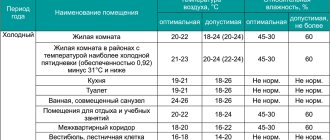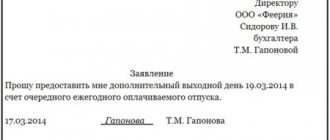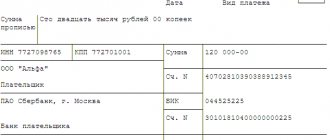In order to check the actual knowledge of the employee and his existing skills, the management of the company, with his consent, can establish a test at the time of his admission. The administration of the subject must formalize this situation by issuing an order for employment with a probationary period. During this period, the employee’s performance indicators are recorded and compared with standards. If an employee cannot cope with his work, then his management has the right to dismiss him under a simplified procedure.
Registration according to the Labor Code of the Russian Federation: duration, conditions of the probationary period
Probationary period - how is it documented and how to accept an employee for probation without making mistakes?
According to the Labor Code, the employer must indicate in the contract the fact of establishing a probationary period and the period for which it will be valid. There are restrictions on the duration of the trial. The period allotted for the test and recorded in the documents can be extended and revised upward only in exceptional cases. For example, when an employee missed work days without a justified reason, which could be illness, fulfilling a donor duty, etc. In such circumstances, the missed deadline is calculated in detail and added to the probationary period.
Registration for a probationary period under the Labor Code of the Russian Federation implies that an employee for whom a probationary period has been established is protected to the same extent as employees with employment agreements without testing. That is, all labor standards regarding wages, disability, etc. apply to him. As a result, for example, payment for his labor should be at the same rates as for main personnel. But his responsibilities are similar: he must comply with all disciplinary regulations established at the enterprise.
The difference between those employees who are forced to undergo a probationary period and those who work without such testing (already passed or were hired without testing) is only that their dismissal procedures differ.
All personnel officers understand the importance of this document. This document must be prepared in accordance with all the rules. How to issue (draw up) an order for employment?
At the time of its registration, it is necessary to indicate the name of the structural unit, the employee’s position, probationary period, conditions of employment and the nature of the work that the employee will be engaged in.
(Here it is necessary to indicate if the employee is employed part-time, if this is a transfer from another organization, if the employee is a substitute for a person absent from the company, if he is engaged in a certain job).
If a contract is concluded for an indefinite period, in the details “date” (T1) or “Work period” (T1a), the “to” column should not be filled in.
When the order is signed by the manager, it is announced to the accepted employee. The employee must certify with his signature that he has read the order.
Lack of registration in the required region can become an obstacle to employment. Based on Article 64 of the Labor Code of the Russian Federation, it is not necessary to present documents confirming registration at the place of stay.
Denial of employment based on the lack of such documents is considered illegal. But still, obtaining registration is the responsibility of a citizen. Failure to comply with this responsibility may result in the person being issued a fine. The amount of the fine cannot exceed 2,500 rubles.
If an employee is hired part-time, then all documents are prepared in the same way as in the case of employment for the main job. The only nuance is that the work book is kept at the main place of work.
Government employees
As in the case of ordinary employees, a testing period may be assigned to potential civil servants, after which the department will make a decision on the competence of the new employee, as well as the issue of his employment.
The only difference between the probation period of civil servants and ordinary workers is the length of the test.
Thus, if commercial companies have the right to prescribe no more than three months of probation (in some cases up to six months), then for civil servants the period is set from a quarter of a year to twelve months.
Who should not be given a probationary period?
Yes, this must be done; the employer’s order to hire is announced to the employee against signature.
Before placing an employee on a probationary period, the employer must make sure that the candidate is not included in a preferential category for which such a trial cannot be established. The list of released persons is given in Art. 70 of the Labor Code of the Russian Federation, it includes:
- candidates who were promoted to positions as a result of winning a competition;
- pregnant women;
- women raising children under 1.5 years of age;
- candidates under 18 years of age;
- persons who have graduated from secondary vocational educational institutions or universities, if they are entering work for the first time after receiving an education document;
- persons who were elected to office as a result of elections;
- persons who came to the position by transfer from other enterprises;
- employees who have entered into employment agreements for a period of up to 2 months;
- persons released from probation for other reasons.
A test for a new employee is necessary to assess his business qualities and check his suitability for the work performed. The legislator determines the rules for setting and summing up the deadline in Art. 70, 71 Labor Code of the Russian Federation.
The fact that the test was installed is an additional condition of the employment agreement. If the parties have agreed on it, the employer includes the information in the text of the contract. If there is no condition in the text of the contract, the person begins work without conditions.
The exception is when the employee has actually started work and the employment agreement has not yet been drawn up. With this option, the employer has the right to provide for probation provisions in the employment agreement only if the parties have reached an agreement and formalized it in writing in the form of a separate document before the start of work (Part 2 of Article 67 of the Labor Code of the Russian Federation).
To register, a number of conditions must be met:
- Before starting work, arrange an appointment with a test;
- formalize the agreement in a separate written document.
When establishing a test, the employer:
- checks whether the applicant has any inhibitions;
- determines the deadline;
- documents the fact of determining the test.
A probationary period is not established for employees in cases provided for by the Labor Code of the Russian Federation (Part 4 of Article 70) and other legislative acts.
| Category of workers for whom the probationary period is not established | Link to norm |
| Holding a position as a result of election by competition | Paragraph 2 hours 4 tbsp. 70 Labor Code of the Russian Federation |
| Pregnant women and women with children under 1.5 years of age | Paragraph 3 hours 4 tbsp. 70 Labor Code of the Russian Federation |
| Employees under 18 years of age | Paragraph 4 hours 4 tbsp. 70 Labor Code of the Russian Federation |
| Employees who begin to work in their specialty for the first time - for 1 year from the date of receipt of secondary or higher education in programs with state accreditation | Paragraph 5 hours 4 tbsp. 70 Labor Code of the Russian Federation |
| Holding a position that is elected and paid | Paragraph 6 hours 4 tbsp. 70 Labor Code of the Russian Federation |
| Accepted transfer by agreement of employers | Paragraph 7 hours 4 tbsp. 70 Labor Code of the Russian Federation |
| Working under an employment agreement lasting up to 2 months | Paragraph 8 hours 4 tbsp. 70 Labor Code of the Russian Federation, Art. 289 Labor Code of the Russian Federation |
| Those who have completed their apprenticeship and entered into an employment agreement with the organization in which they studied | Part 1 art. 207 Labor Code of the Russian Federation |
| Sometimes when appointed to civil service positions and positions of employees of internal affairs bodies | Part 3 art. 27 Federal Law of July 27, 2004 No. 79-FZ, clause 1, 3, part 10, art. 24 Federal Law dated November 30, 2011 No. 342-FZ |
| Persons in alternative civil service | Clause 1 Art. 16 Federal Law dated July 25, 2002 No. 113-FZ, clause 41 of the Regulations on the procedure for passing the AGS, Decree of the Government of the Russian Federation dated May 28, 2004 No. 256 |
The employer does not have the right to include information about the probationary period in the employment agreement with an employee who meets the criteria considered. If such information is contained in the contract, the dismissal of an employee on grounds of failure (Part 1 of Article 71 of the Labor Code of the Russian Federation) is illegal (Part 2 of Article 29 of the Labor Code of the Russian Federation, paragraph 2 of paragraph 9 of the Resolution of the Plenum of the Armed Forces of the Russian Federation dated January 28, 2014 No. 1) .
Concept
This is a document on the basis of which data is entered into the work book, the employee’s personal file, a personal account is opened and a personnel number is assigned. It is issued when the manager decides to hire a new employee.
There are 2 forms of this order.
- Order form T1. This form is used when hiring one employee.
- Form T1a. This form of order is used if an organization employs several employees.
Maximum duration
The Labor Code, Federal Law No. 79 of July 27, 2004 determines the maximum permissible periods for various categories of workers.
| Duration of term | Employee category | Provisions of legislative acts |
| Up to 14 days | Employees who are hired on a fixed-term contract from 2 to 6 months | Part 6 art. 70 Labor Code of the Russian Federation |
| Up to 3 months | Employees for whom the legislator has not established other periods | Part 5 art. 70 Labor Code of the Russian Federation |
| Up to 6 months |
| Part 5 art. 70 Labor Code of the Russian Federation |
| From 1 month to 1 year | Persons who:
| Part 1 item 1 part 2 art. 27 Federal Law No. 79-FZ |
| From 1 to 6 months | Citizens (when appointed to a civil service position) who:
| P. 2, 3 parts 2 tbsp. 27 Federal Law No. 79-FZ |
The trial period does not include the dates of the employee’s actual absence from work (Part 7, Article 70 of the Labor Code of the Russian Federation).
Correct filling of the unified T1 form
This document is usually drawn up by an employee of the enterprise's human resources department.
Then it is signed by the head of the organization.
How to fill out a job application so that everything is correct?
Name of company. The full name of the organization is indicated here. You can't shorten it.
Job title. The employee's position should be indicated in this column. The position cannot be reduced either.
Date of termination of the employment contract. If an employee is employed as a temporary employee, for example, replacing an absent employee, then the date when the employment contract will be terminated is indicated.
Individual worker number (where does this number come from?). This document is issued by the tax office upon application from a citizen. A citizen must obtain a TIN before employment and provide it to the personnel department.
Full name of the worker. This information must also be filled out in the order. Full name must be filled in, without abbreviations. If a citizen is a foreigner, he may not have a middle name. In this case, there is no need to write down the middle name in the order.
Subdivision. Here a record is made of which department the employee is accepted into.
Probation period, its conditions and procedure for completion. Different positions have different conditions. Not all new employees may be subject to a probationary period. Who doesn't install it? This is described in detail in Article 70 of the TCRF.
In this column, you need to write down in detail the information for what period the probation period is set, what the salary will be during the probationary period, and what are the conditions for the employee to complete it.
Conditions of employment. What to write in the order? It is necessary to clarify the conditions under which the employee is accepted for this position (Part-time work, temporary work, permanent work, work as a deputy for a temporarily absent employee). Such conditions depend on what the employer needs at this moment - to find a permanent employee or a deputy?
Nature of work. The Labor Code of the Russian Federation indicates that the nature of the work may be as follows:
- mobile nature of work;
- traveling nature of the work;
- work on the way.
Traveling work means that the employee moves around one or more localities. In this case, the employee will not have a permanent place of work. For example, this is the nature of the work that will be indicated in the order of the courier, driver or postman.
If it is work on the road, this means that the person cannot return to his home every day. For example, a conductor or a forwarder will have such work. They are not granted business trips, but, nevertheless, they may not appear at home from a day to several weeks.
Mobile nature of work. In this case, the workplace changes very often. For example, a builder, a security guard or a logger.
Remuneration (fixed pay and hourly pay - consider two cases). Is it possible not to indicate the salary in the work order?
The rate or salary at which the employee works is usually indicated. You can specify either an hourly rate or a salary. This depends on the specifics of the employee’s work.
If an employee is hired on an hourly basis (For example, a catering worker), then the order indicates the hourly rate at which the employee works.
In a simpler case, if an employee gets a job either full-time or half-time, then the salary can be indicated here.
The basis for hiring is in the order. Such a document is drawn up if the manager has decided to accept an employee into the company’s staff. After the decision of the manager, an employment contract is concluded between the company and the employee. An employment contract is the basis for drawing up an order for employment.
Manager’s visa (can another person sign the order, is the organization’s seal placed on the order?). In addition to the manager, the order can be signed by his deputy. The organization's seal must be present on all orders, including this one.
Date (does the date of hiring coincide with the date of the hiring order? Can the date in the hiring order be later than the worker’s departure? Can the date in the order be earlier than the worker’s hiring?)
This is not always the case; it is drawn up on the day the employee leaves. Sometimes the order is drawn up earlier. In this case, it is indicated that the employee starts work on a different date. It happens that the document was drawn up on May 5, but the order states that the employee begins working on May 10.
Order number. It is assigned in accordance with the registration log.
How to correctly write a condition
To formalize the conditions, the employer:
- Introduces the employee, against signature, to the regulations on the procedure for passing the test (Part 3 of Article 68 of the Labor Code of the Russian Federation). The Labor Code of the Russian Federation does not establish an algorithm for passing the trial period, so the enterprise determines it independently (Part 1, Article 8 of the Labor Code of the Russian Federation).
- Includes information about the trial in the employment agreement (Part 1 of Article 70), indicating the duration of the period. A probationary period is an optional condition of the contract. The absence of a probationary period condition means that the employee works without a probationary period (Part 2 of Article 70 of the Labor Code of the Russian Federation).
- Indicates the period in the administrative document on appointment to the position. The duration of the term under the order coincides with the period specified in the employment agreement (Part 1 of Article 68, Part 1 of Article 70 of the Labor Code of the Russian Federation).
There are no special requirements for wording, that is, the parties develop them independently. Here is an example of how to write a probationary period in an employment contract.
When allowed to work without signing an employment agreement, the employer:
- signs a separate agreement regarding the trial period;
- when subsequently drawing up an employment contract, he enters into the document information about the probationary period on the basis of a previously concluded agreement.
If language regarding the test is included in the order, but is not in the employment agreement, the condition has no legal force (cassation ruling of the Supreme Court of the Udmurt Republic dated October 10, 2011 in case No. 33-3632/11). Thus, it is illegal to enter into an agreement for a probationary period without recording information about the probationary period in the order.
Dismissal
If the employing company considers the probationary employee unsuitable for the declared position, then, according to Russian law, it can dismiss the worker before the end of his testing period.
To dismiss a worker during his probationary period, on the basis of an unsatisfactory professional level, the employing company must provide notice three days before the order is executed.
The order must contain a reference to the seventy-first article of the Labor Code of Russia.
It is also advisable that the employing company promptly prepare documentation that would confirm the lack of necessary professional skills of the tested employee, because the latter has every right to appeal the hiring company’s decision to dismiss. During the probationary period, it is necessary to record all the worker’s mistakes in writing. For example, for being late for work, an explanatory note must be written, and a corresponding entry must be made in the report.
Receipt of cargo at the enterprise is entrusted to an employee. In order to avoid problems when receiving material assets, you need to correctly draw up a power of attorney. Sample power of attorney to receive goods: instructions for filling out, look on our website.
Read about how to calculate product profitability in this material.
What to do if you don't pass
If the employee has not passed the test period, the employer has the right to terminate the employment agreement with him (Part 1 of Article 71 of the Labor Code of the Russian Federation).
The dismissal algorithm consists of several steps for the employer:
- Check compliance with the algorithm for establishing the condition when assigning.
- Provide written notice 3 calendar days before the end of the period (Part 1 of Article 71 of the Labor Code of the Russian Federation) of the desire to terminate the employment agreement due to the results of the period.
- Issue an administrative document on termination of the contract, draw up a settlement note.
- Write down information about the termination of the contract in the employee’s employment and personal cards.
- Pay amounts due to the employee on the day of dismissal.
If a person is on sick leave or on vacation, it is impossible to dismiss him as having failed the test (Part 6 of Article 81 of the Labor Code of the Russian Federation). In this case, the date of dismissal falls on the first working day after leaving sick leave (Article 70, Part 6, Article 81 of the Labor Code of the Russian Federation).
If the fact of having a certificate of incapacity for work is concealed, termination of the employment agreement during the period of absence on the basis of Part 1 of Art. 71 of the Labor Code of the Russian Federation is recognized as legal.
What is it needed for?
Assigning testing time in a certain sense can be beneficial not only to the employing company, but also to the employee himself.
This practice is an excellent opportunity for the hiring company and the hired specialist to take a better look at each other and evaluate both the level of professional skills of one and the compliance with the expectations of the other.
Plus, if an employee turns out to be dissatisfied with the company, or vice versa, the process of dismissal during the test is much simpler and faster than after official employment.
Another advantage of the verification period for the hired specialist is the opportunity to gain more professional experience and ask for advice from more experienced specialists.
True, taking into account the increased attention to his person, the worker should not attract undue attention to himself with numerous questions, because this can be regarded as incompetence and insufficient professional knowledge.
Sample employment contract with probationary period
| October 21, 2021 No. 27-TD | Moscow |
1. General Provisions. Subject of the agreement.
1.1. An employee is hired at the State Budgetary Educational Institution for Additional Education of Children, the Specialized Children's and Youth Sports School of the Olympic Reserve "Allur" for the position of a horse riding teacher.
1.2. The Employee's workplace is located: Moscow, 3rd Budget Proezd, 1.
1.3. Working conditions at the Employee’s workplace, based on the results of a special assessment of working conditions, are optimal (class 1).
1.4. The work under this employment contract is the main one for the Employee.
1.5. This employment contract is concluded for an indefinite period.
1.6. The start date of work (the date when the Employee starts work) is 10/21/2019.
1.7. The employee is subject to a pre-employment test to verify his suitability for the assigned job. The trial period is 3 (three) months from the date of actual start of work. The probationary period does not include periods when the Employee was actually absent from work.
The criteria for successfully passing the test are the complete, high-quality and timely fulfillment by the Employee of the labor function provided for by this employment contract and job description, orders (instructions) of the Employer, orders of the immediate supervisor, local regulations and work requirements in force in the organization, labor discipline, labor protection regulations and safety precautions.
2. Rights and obligations of the Employee.
2.1.1. Amendment and termination of an employment contract in the manner and under the conditions established by the Labor Code of the Russian Federation and other federal laws.
2.1.2. Providing work stipulated by this employment contract, as well as a workplace that meets state regulatory labor protection requirements.
2.1.3. Complete reliable information about working conditions and labor protection requirements in the workplace.
2.1.4. Providing the workplace with equipment, tools, technical documentation and other means necessary for the performance of work duties.
2.1.5. Timely and full payment of wages in accordance with your qualifications, complexity of work, quantity and quality of work performed.
2.1.6. Rest, that is, compliance with daily working hours, provision of breaks for rest and meals, weekly days off, paid annual leave in accordance with this employment contract and the labor legislation of the Russian Federation.
2.1.7. Compulsory social insurance in the manner and under the conditions established by the current legislation of the Russian Federation for the period of validity of this employment contract.
2.1.8. Exercise of other rights provided for by the labor legislation of the Russian Federation, Internal Labor Regulations and other local regulations.
2.2.1. Conscientiously perform the labor function corresponding to the position of HR manager, enshrined in the job description (Appendix No. 1), which is an integral part of this employment contract.
2.2.2. When performing a labor function, act in accordance with the legislation of the Russian Federation, Internal Labor Regulations, other local regulations, and the terms of this employment contract.
2.2.3. Comply with the Internal Labor Regulations, other local regulations, including orders (instructions) of the Employer, instructions, rules, etc.
2.2.4. Not to disclose confidential (commercial, technical, personal) information that became known to him in the process of performing his labor function.
2.2.5. Comply with labor protection, safety, fire safety and industrial sanitation requirements. If a situation arises that poses a threat to the life and health of people, or the safety of property, immediately report the incident to the Employer or immediate supervisor.
2.2.6. Treat with care the property of the Employer (including the property of third parties held by the Employer, if the Employer is responsible for the safety of this property) and other employees and, if necessary, take measures to prevent damage to property.
2.3. Failure to include in the employment contract any of the rights and (or) obligations of the Employee established by labor legislation and other regulatory legal acts containing labor law norms, local regulations, cannot be considered as a refusal to exercise these rights or fulfill these obligations.
3. Rights and obligations of the Employer.
3.1.1. Change and terminate the employment contract with the Employee in the manner and under the conditions established by the Labor Code of the Russian Federation and other federal laws.
3.1.2. Demand that the Employee fulfill his job duties and take care of the property of the Employer and other employees, comply with the Internal Labor Regulations and other local regulations, labor discipline, safety regulations, industrial sanitation and fire protection.
3.1.3. Encourage the Employee for conscientious, effective work in the manner and under the conditions established by the Regulations on Remuneration (approved by Order No. 2 of January 18, 2016) and other local regulations of the Employer.
3.1.4. Provide voluntary medical insurance to the Employee in accordance with the Policy on Social Benefits for Employees (approved by Order No. 7 dated January 20, 2016).
3.1.5. Monitor the Employee’s performance of labor duties, compliance with labor discipline, safety regulations, industrial sanitation and fire protection, internal labor regulations and other local regulations.
3.1.6. Bring the Employee to disciplinary and financial liability for failure to perform or poor performance of the Employee’s labor duties in the manner established by the Labor Code of the Russian Federation and other federal laws.
3.1.7. Exercise other rights provided for by the labor legislation of the Russian Federation, Internal Labor Regulations and other local regulations.
3.2.1. Comply with labor legislation and other regulatory legal acts containing labor law norms, local regulations, terms of agreements and this employment contract.
3.2.2. Provide the Employee with work in accordance with the terms of this employment contract.
3.2.3. Ensure safe working conditions in accordance with labor protection requirements.
3.2.4. Provide the Employee with a properly equipped workplace, provide him with equipment, tools, technical documentation and other means necessary to perform his job duties.
3.2.5. Keep records of working hours actually worked by the Employee.
3.2.6. Provide the Employee with timely and full payment of wages in accordance with his qualifications, complexity of work and quality of work performed.
3.2.7. Introduce the Employee, against signature, to the adopted local regulations directly related to his work activity.
3.2.8. Carry out compulsory social insurance of the Employee in the manner established by the current legislation of the Russian Federation.
3.2.9. Compensate for harm caused to the Employee in connection with the performance of his labor duties, compensate for moral damage in the manner and under the conditions established by the Labor Code of the Russian Federation, other federal laws and other regulatory legal acts of the Russian Federation.
3.2.10. Maintain a work record book for the Employee in accordance with the legislation of the Russian Federation.
3.2.11. Perform other duties provided for by labor legislation, including legislation on special assessment of working conditions and other regulatory legal acts containing labor law standards, agreements, local regulations and this employment contract.
4. Working time and rest time.
4.1. The employee is assigned a normal working time of 40 hours per week.
4.2. The employee has the following working hours:
- five-day work week with two days off (Saturday and Sunday);
- Duration of daily work - 8 hours;
- start of work - 09.00, end of work - 18.00;
- break for rest and food - 1 hour (from 13.00 to 14.00).
4.2.1. The Employer has the right to engage the Employee to work on weekends and non-working holidays, and to work overtime in the manner and under the conditions established by labor legislation.
4.3. The employee is granted annual basic paid leave of 28 calendar days.
4.3.1. The right to use vacation for the first year of work arises for the Employee after six months of continuous work with this Employer. By agreement of the Parties, as well as in cases established by law, paid leave may be granted to the Employee before the expiration of six months.
4.3.2. Vacation for the second and subsequent years of work may be granted to the Employee at any time of the working year in accordance with the vacation schedule.
4.3.3. If the Employee wishes to take annual paid leave in a period other than that provided for in the vacation schedule, he must notify the Employer in writing about this no later than 2 weeks before the intended vacation. Changes in the terms of granting leave in this case are made by agreement of the Parties.
4.3.4. By agreement of the Parties, annual paid leave may be provided to the Employee in installments. In this case, at least one part of the vacation must be at least 14 calendar days.
Labor Code of Russia
According to the precise definition according to the Labor Code of Russia, a probationary period is a predetermined time interval during which the employing company evaluates a new specialist in order to check his level of preparedness in the declared specialization.
In other words, the employer takes on a new employee and observes him for a certain period of time. The following provisions are taken into account:
- Level of competence and professional knowledge.
- Speed of completing assigned tasks, compliance with indicators (statistical average).
- The new employee’s desire for self-improvement and constant increase in the level of specialization.
- Flexibility in decision making and generating new ideas.
- Coherence of work in an already formed team.
- Identify common personal habits.
- Architecture of thought and creativity in completing tasks.
All of the above aspects have a direct impact on the employer’s decision: whether a new employee will be accepted into the company or whether he does not meet the stated requirements.







